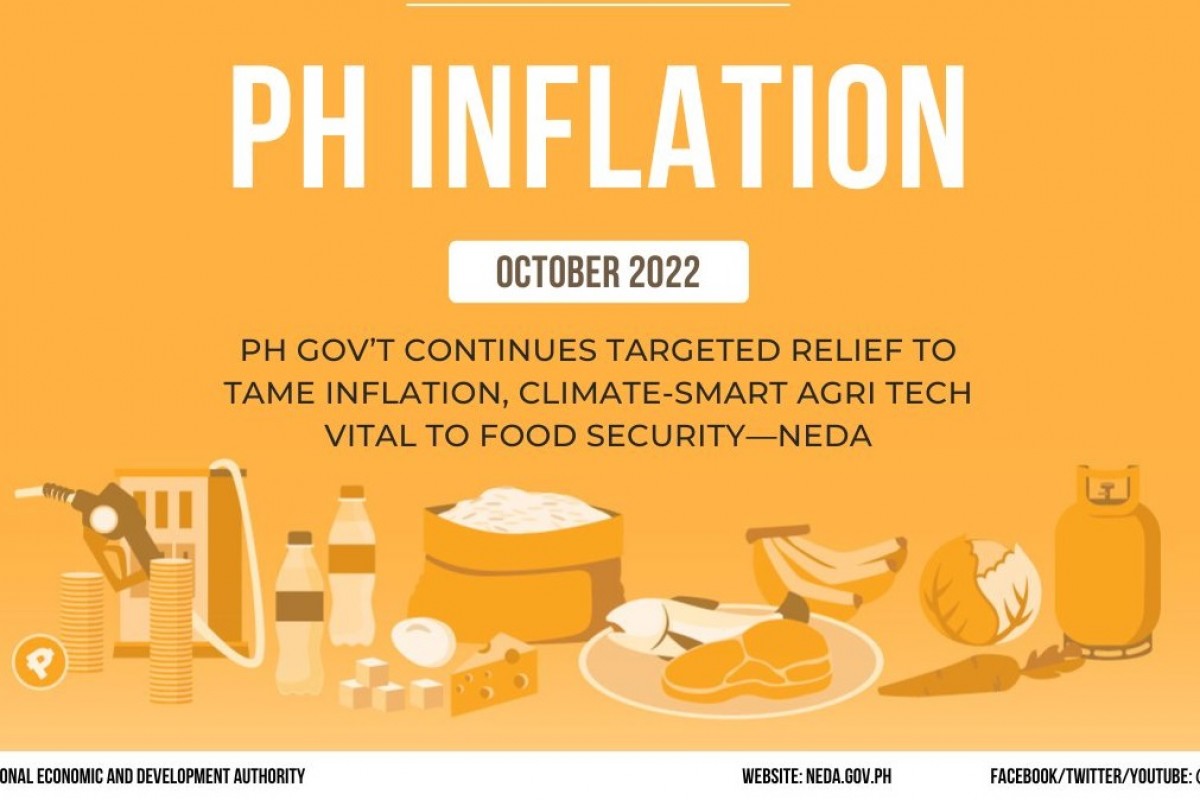MANILA –- The Philippine government is committed to providing immediate relief to cushion the impact of rising inflation, while investing in climate-smart technologies and systems to build the country’s resilience and ensure food security, the National Economic and Development Authority (NEDA) said.
The Philippine Statistics Authority reported today that the country’s headline inflation rate accelerated to 7.7 percent in October, significantly higher than the 6.9 percent in September this year. This is within the Bangko Sentral ng Pilipinas’ forecast range of 7.1 to 7.9 percent for the month.
The continued uptrend in inflation in October was driven by faster inflation rate in key commodity groups, particularly food and non-alcoholic beverages, which increased to 9.4 percent from 7.4 percent in September 2022.
Among the top contributors to October 2022 inflation are meat, fish, and vegetable (1.7 ppts); electricity, gas, and other fuels (1.1 ppts); operation of personal transport (0.6 ppt); food and beverage services (0.5 ppt); passenger transport services (0.5 ppt); and housing rentals (0.5 ppt).
This surge in prices resulted from external price pressures, like the Russia-Ukraine war and lockdowns imposed in parts of China, which disrupted global supply chains, and the lingering aftermath of recent typhoons, including Typhoon Karding that hit the country in late September.
Given the damage to property, lives and livelihood from the recent typhoons, NEDA underscores the importance of immediately providing assistance to those affected, while building the resilience of families, communities and production sectors.
“Our immediate priority is to continue supporting the most vulnerable sectors of the economy, hence, the cash transfers and fuel discounts will continue. This will alleviate the effects of the sustained increase in commodity prices as a result of global headwinds as well as the recent typhoons which damaged our domestic production and disrupted food supply,” NEDA Secretary Arsenio M. Balisacan said.
Noting that the country incurs huge losses every year due to weather disturbances and other disasters, the medium-term strategy is to invest in innovations and appropriate technologies and systems to make the economy and communities resilient. Equally important is the need to improve the governance structure for managing water resources and, at the same time, mitigating the risks from water-induced disasters. These strategies will be elaborated in the upcoming Philippine Development Plan 2023-2028.
“It’s high time that we boost support for the agriculture sector not only in post-disaster recovery, but more importantly through preemptive measures. To sustain productivity and resilience, climate-adaptive agricultural technologies should be put in place and value chains strengthened. In addition, one of the priority legislative measures of the President is the creation of the Department of Water Resources that will oversee the use and supply of water, and mitigate the risks of water-induced disasters,” Balisacan said.
“We would like to assure the public that the Philippine government is closely monitoring the inflation and possible inflation pressures. We continue to prioritize and proactively manage these issues by providing immediate assistance and enabling timely imports to augment domestic food production, while building the resilience of families, communities and the economy,” Balisacan added. (NEDA)



